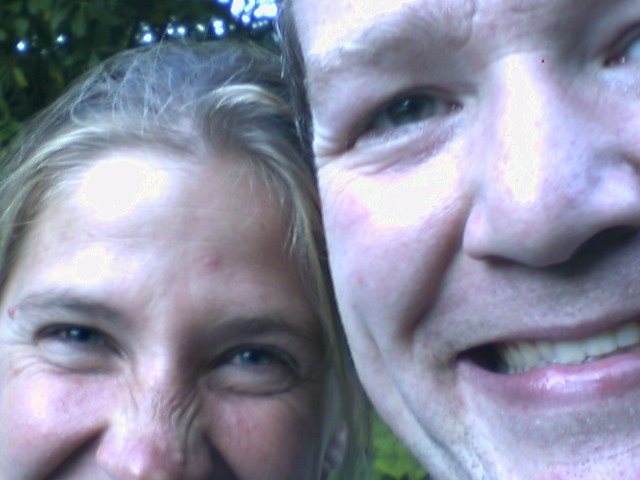Noah's Ark: salvation, anthropocide, or xenocide?
My beautiful and super amazing Megsie came home today and informed me that it's her turn this week to tell the story at Sunday School at the relatively kewl Union Church this Sunday. With her she brought a box with wooden models of Noah's Ark, including a gangway and lots of little pairs of animals. Megsie (regretted to) inform me that this was the story which she had been assigned--the story of Noah's ark.
Here's the relevant Bible passage.
This is a story I grew up with, and felt pretty familiar with, which I haven't looked at in a while. So I went back and glanced through it again today with my current eyes.
I think it's more interesting if you just toss out, to begin with, the question of whether it's factually true or not =).
I asked Megsie where are the models of all the dead people? Is that a bit macabre? Why is it we teach our children this story, where every living thing on the face of the entire planet is wiped out, but we don't teach them the other creepy stories from the old testament, like mere genocides, or prostitutes being hacked into pieces and fedex-ed all over the country and so forth? Maybe this story has a greater sense of redemption than those?
Actually, it seems to me that it does. It feels like a story about a newish God learning, growing, and regretting. First she regrets the existence of humanity, with all our evil. But at the end, he/she regrets even more having come that close to wiping us right out, and vows never to do such again. Which vow, so far anyway, it seems he/she has managed to keep. Although a few times just barely.
Perhaps it means that there's hope!
Anyway--here's my question (and I think it's a rather interesting one): Is God killing off the entire human race in Genesis 6-8 closer to anthropocide (by which I mean the killing of all of humanity), or xenocide (by which I mean the killing of an entire alien species)? Or maybe it works out to both?
(Now if I can just convince Megsie to introduce the story to the children as "Noah and the Xenocide by flood")


4 comments:
Noah and the Xenocide by flood. Beware the Alien Deity!
B - I was re-reading the rather excellent The Politics of Jesus by Yoder yesterday. I really recommend you have a go reading it.
One of the things he was saying was about the nature of 'legend' - being not so much a call on the authentic-ness of a story but about its position within a society. So, 'true' or not, a story takes on meaning when it is repeated endlessly and given meaning in society.
Personally I don't have a particular problem with the flood story in itself - but I am interested what it tells us about ourselves. At some level it is saying that we're rescued people, reminding us that we're fragile and at the mercy of the elements.
Much more problematic to me is the Abraham-Isaac story, which I have trouble thinking about, never mind teaching to children.
Maybe it is a rather sociological approach (of which, of course, I am unqualified) to contemplate the effect of stories on our lives. But interesting and helpful I find.
I wonder what effect it would have had if we had allowed the words of the minor prophets become part of our consciousness rather than the pentitude.
Have you ever read Jack Miles' "God: A Biography"? He describes the story in much the same way. i Loved that book. it won a pulitzer. here's the wikip:
http://en.wikipedia.org/wiki/God:_A_Biography
I remember as a child seeing an artist's rendering of the ark on the floodwaters complete with stricken people in the stormy water reaching out toward the ark. I'm amazed at how often we've been given Noah's Ark books to read to our kids; they're always very cute. Boats, water, animals... Never have seen another picture that includes the drowning people since that one in my childhood.
Last Easter I bought some children's books on the crucifiction, death and resurrection of Jesus. That story isn't pretty either.
Post a Comment